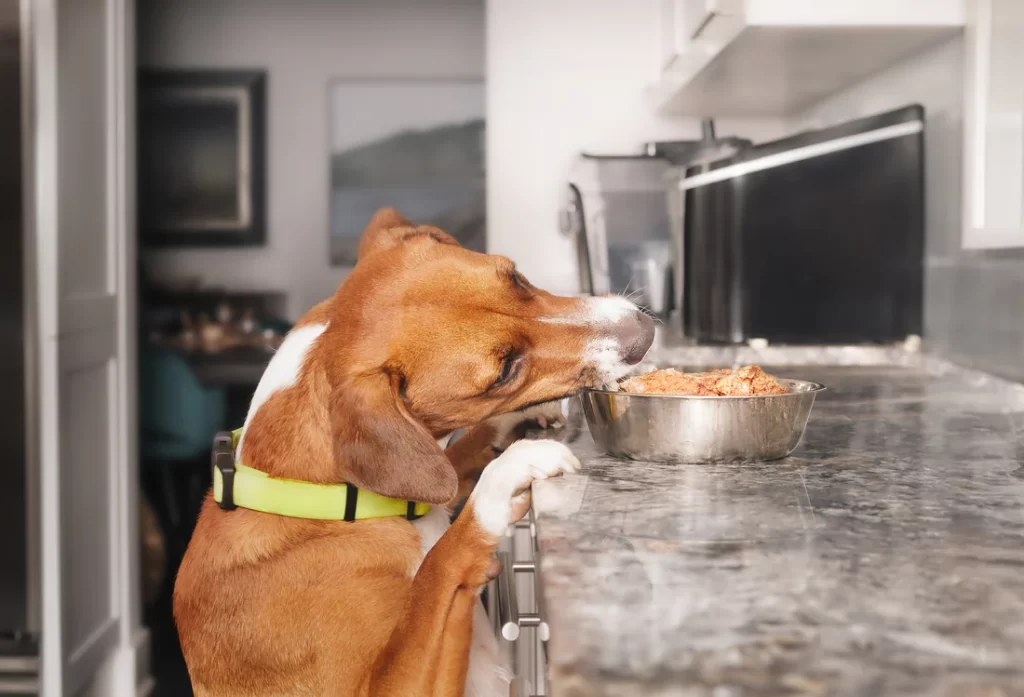We all love our pets unconditionally, but sometimes they develop somepet insurance peculiar habits that can leave us scratching our heads.
One such habit is food stealing, which can be both frustrating and potentially harmful. If your pet has developed a knack for snatching food off the table or counter, don’t worry, you’re not alone!
Dealing with a pet stealing food requires training and management. This is crucial because dogs can get their mouths on toxic human food or other things that could prove poisonous to their health.
Exercise complete vigilance when platters are piled on the dining table because it can only take a few missed moments for four-legged babies to grab food and fall ill. Also, consider being equipped with pet insurance so that such health emergencies can be handled more efficiently.
With the best pet insurance, your pet can be assured comprehensive health coverage up to the benefit limit, so consider it. Read this article for tips on how to remedy your pet’s food-stealing habit.
Top tips to tackle food stealing habits in dogs
First and foremost, invest time in training your pet. Teach them basic cues like leave it, drop it, or stay to establish clear boundaries. Positive reinforcement, such as treats, hand gestures, and praises, can encourage good behaviour.
Consistency is key. Be patient and repeat the training exercises regularly. If your pet attempts to steal food, use the cues you’ve taught them and reward them when they comply. Consistent reinforcement will help them understand what behaviour is expected.
Additionally, manage the environment to minimise temptations. Store food securely in pet-proof containers or cabinets. Avoid leaving food unattended on countertops or tables. Supervise your pet during meal times and redirect their attention if they show interest in forbidden items.
Create a designated feeding area for your pet, reinforcing the idea that food is only acceptable in that space. If your pet continues to steal food, consider consulting a professional trainer or behaviourist for personalised guidance.
It’s essential to address the root cause of the behaviour. Ensure your pet is receiving an appropriate and balanced diet to reduce the likelihood of food-seeking behaviour. Regular exercise and mental stimulation can also contribute to a well-fed and well-behaved pet.
Patience and positive reinforcement are crucial in modifying your pet’s behaviour. Consistent training and environmental management will help curb the habit of stealing food over time.
Pets may steal food due to various reasons. It could be a learned behaviour driven by positive reinforcement, seeking attention, or an attempt to satisfy instincts. They might associate stealing with rewards or attention, making it a recurring behaviour.
In some cases, it could result from boredom or inadequate nutrition. Additionally, pets may be motivated by the scent or taste of certain foods. Understanding the underlying cause, offering a nourished diet, and sufficient mental stimulation through physical activities can help curb food-stealing behaviour in pets.
If your pet consistently steals food, it’s advisable to start with your vet. This way, you can rule out any underlying health issues or dietary deficiencies that may contribute to the behaviour.
If the vet gives your pet a clean bill of health, and the stealing persists, consulting an animal behaviourist is a sensible next step. Behaviourists specialise in addressing and modifying pet behaviours.
They can provide tailored advice, training strategies, and insights into your pet’s specific needs. Combining veterinary and behavioural expertise ensures a comprehensive approach to resolving the food-stealing issue.
Raising a dog involves providing care and preparing for health emergencies as well, so consider pet insurance. The best pet insurance covers a pup for broader-ranging health conditions at a relatively affordable cost, so think about getting a policy.

